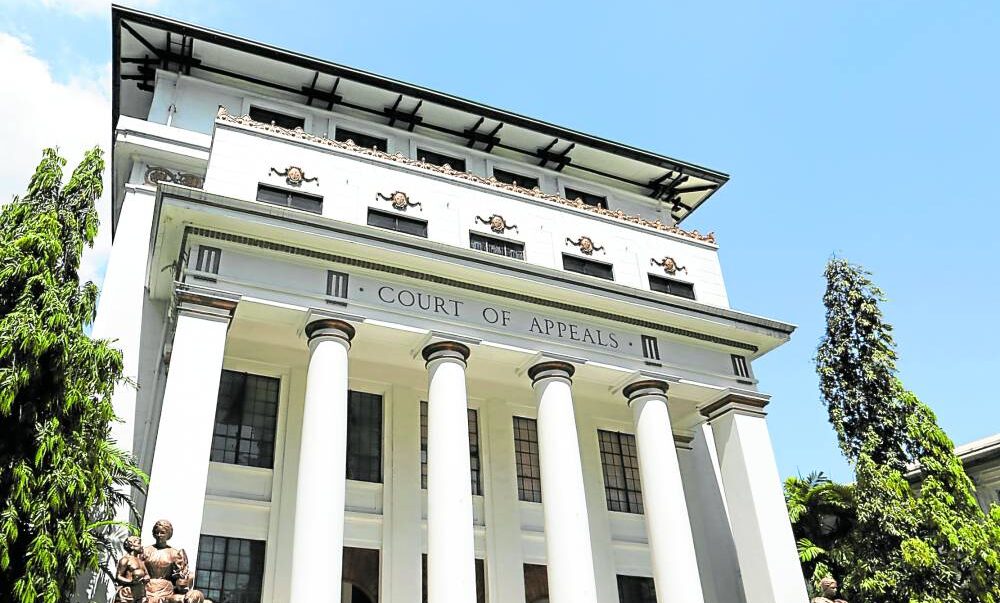30-year legal battle over Marcopper mine disaster impact ends

The Court of Appeals (CA) has approved the $100-million (P5.827-billion) settlement agreement between the provincial government of Marinduque and Barrick Gold Corp., ending nearly three decades of legal battle over the environmental damage caused by the Marcopper mining disaster in the early 1990s.
In a 32-page decision promulgated on Oct. 3, the CA’s former 10th Division dismissed with prejudice the writ of kalikasan filed in 2011, approving the deal and declaring the case closed and terminated. The writ of kalikasan is a legal remedy that protects the constitutional right to a balanced and healthful ecology.
In its decision, the appeals court noted that it has been almost 30 years since the Marcopper mining disaster and that the petition had been pending before it for nearly 15 years.
This incident was known as one of the worst mining disasters in the Philippines. At least 36 people died from heavy metal contamination caused by the mine waste. The spill, which also left the Boac River virtually dead, is also considered the country’s worst industrial pollution disaster.
Marcopper Mining Corp., which started its operations in the 1970s, was shut down in 1996.
“It is only but prudent for this Court to write finis to this case and grant the Parties’ Urgent Joint Omnibus Motion not only to seal a final settlement of the case but, more importantly, for the people of Marinduque, long burdened by the tragedy, to finally partake of its benefits,” the CA said in the ruling penned by Associate Justice Jaime Fortunato Caringal.
Barrick will pay the $100-million settlement amount over three years, with the funds to be remitted to the provincial government’s treasury account. All funds are to be used by the provincial government “for lawful purposes and for the benefit” of the province.
The first payment, amounting to $50 million and currently held in escrow, will be released within five business days after Barrick receives a copy of the CA ruling and a letter from the Department of Environment and Natural Resources (DENR) confirming that the company has no further liabilities under existing remediation orders.
Barrick and the provincial government will then issue a joint instruction to the escrow agent to release the $50 million.
The remaining $50 million will be paid in three annual installments: $17 million on the first and second anniversaries of the initial payment date, and the final $16 million on the third anniversary.
The deal further provides that Marinduque officials “shall not use the money, directly or indirectly, for any act that constitutes graft or corruption.”
2011 petition
The case stemmed from a 2011 petition filed by Eliza Hernandez and Mamerto Lanete, later joined by the Marinduque provincial government as petitioner-intervenor.
Named respondents were Barrick Gold Corp., which acquired Marcopper Mining Corp.’s former shareholder, Placer Dome, and Placer Dome itself.
Hernandez and Lanete sought a writ of kalikasan with a temporary environmental protection order to compel the rehabilitation of Calancan Bay, Boac River, Mogpog River, and nearby areas damaged by the respondents’ operations.
The Supreme Court issued the writ on March 8, 2011, and referred the case to the CA for hearing and reception of evidence.
While several issues remained pending, the CA later suspended proceedings as the parties pursued an amicable settlement.
It was only on April 4 this year when Barrick and the Marinduque government entered into the agreement, which indicated that Marcopper Mining is, and has always been, the owner and operator of the Marcopper mine, independent of its shareholders and affiliates, including Placer Dome.
The parties also agreed that neither Placer Dome nor Barrick would bear any liability or responsibility for existing litigation or regulatory matters involving the Marcopper mine.
Specifically, the deal states that “neither Placer Dome, Barrick, nor any of their releasees has had, now has, or may in the future have any responsibility or liability for the disposal of mine tailings into Calancan Bay from 1976 to 1991.”
The respondents were likewise absolved of liability for the 1993 Maguila-guila Dam breach; the March 24, 1996 tailings spill; any incidents occurring after Placer Dome’s divestment in 1997; and any loss or damage, whether environmental, health-related, or property-related, arising from these events or the mine’s current or future conditions.
In order
After reviewing the documents, the CA found the settlement deal “in order and not contrary to law, morals, good customs, public order, and public policy.”
“For several years, this Court notes that the Petitioners, the Petitioner-in-Intervention, and the Respondents have been negotiating in good faith to bring the controversy to a just and fair conclusion,” the CA said.
It added that the settlement documents serve as the “complete and final adjudication of this Court on the merits of the instant case.” —WITH A REPORT FROM INQUIRER RESEARCH

















